You’ve probably heard the news that Hulu cancelled High Fidelity by now. Perhaps it also left you feeling angry, betrayed, sad, and just plain confused. It seems as if series star Zoë Kravitz was also feeling some of the same things about the news, and I think those feelings are all still justified, even almost two months after the news broke.
The 1995 novel High Fidelity by Nick Hornby became a 2000 motion picture starring John Cusack and then a mostly panned 2006 Broadway musical, so perhaps doing a television series based on the same source material in 2020 seemed like a bad idea. I mean, it’s about a curmudgeonly white man going through his failed relationships while managing a sputtering record store—it just feels like we’ve seen that, no?
Enter Zoë Kravitz as the re-imagined protagonist Rob, inhabiting and occupying traditionally white, masculine spaces (e.g. owning a record shop, being a DJ), and also exhibiting the complicated, flawed, and tortured psyche of what we might have only seen in a white man before. At times Rob is frustrating; at other times she is downright heartbreaking, but it’s impossible to look away from her in the 10 half-hour installments.
Rob, Mac, and Chemistry
Opening on the eve of their breakup, Rob pleads with Mac (Love Life’s Kingsley Ben-Adir) not to leave her, first with slight disdain, then tearfully. In between moments of this, she speaks directly to the audience about her “desert island, all-time, top five, most memorable heartbreaks” which end chronologically with, you guessed it, Mac.
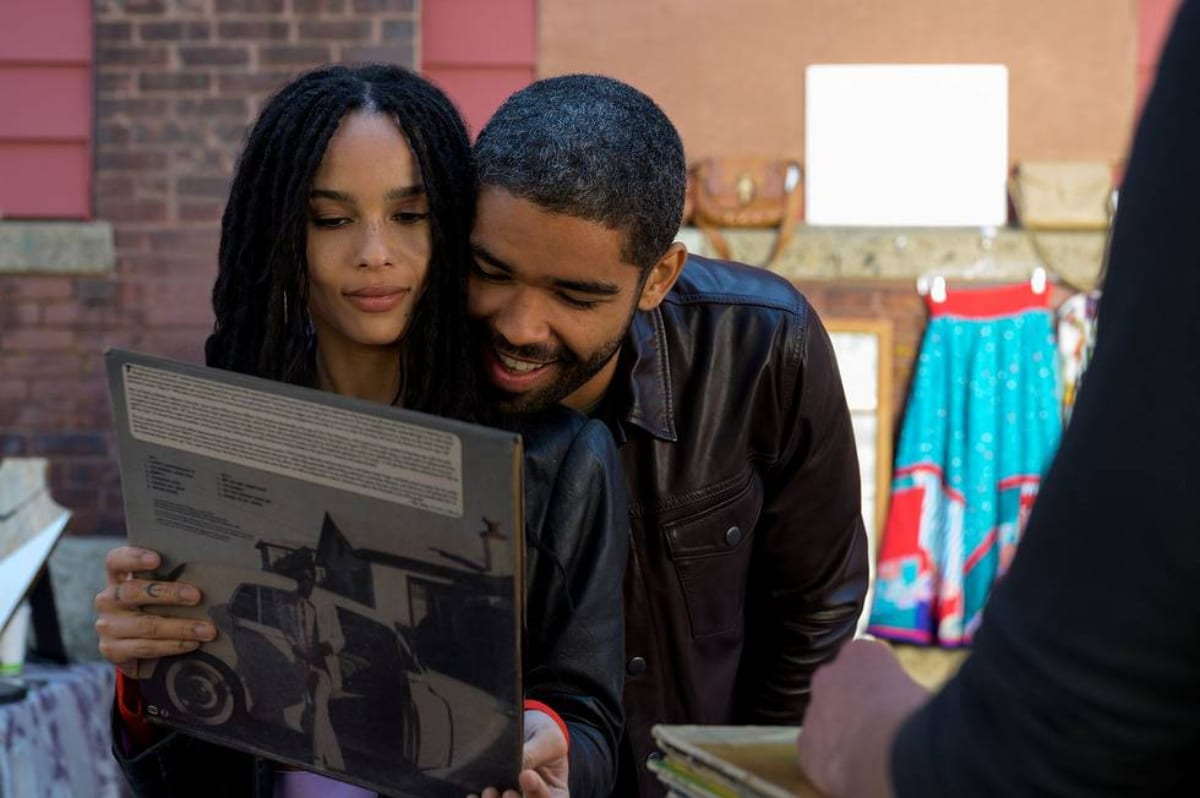
Rob and Mac’s relationship is the relationship this story hinges on, and the writers and actors know that, so when Mac is there it’s electrifying, heartbreaking. Even the glances between Kravitz and Ben-Adir are tingly goodness. But it’s also worth noting that the reason it works so well is because Mac is used sparingly. The actor is only a guest star, but when he comes back it increases the intensity of the show—much like Chris Noth’s character in The Good Wife. Honestly, the ending shot of Rob standing at the top of the stairs staring down at Mac in Episode 9 has stayed in my head for months and still gives me chills upon rewatching. Their chemistry is THAT powerful.
The Fourth Wall/Narrator Presence
In what now feels Fleabag-esque but is actually something that was done in the original movie, Rob often talks directly to us. In different hands, this device can feel lazy, but thanks to sharp cuts and strong delivery from Kravitz, it feels true to the character and builds her up as a trusting, relatable narrator.
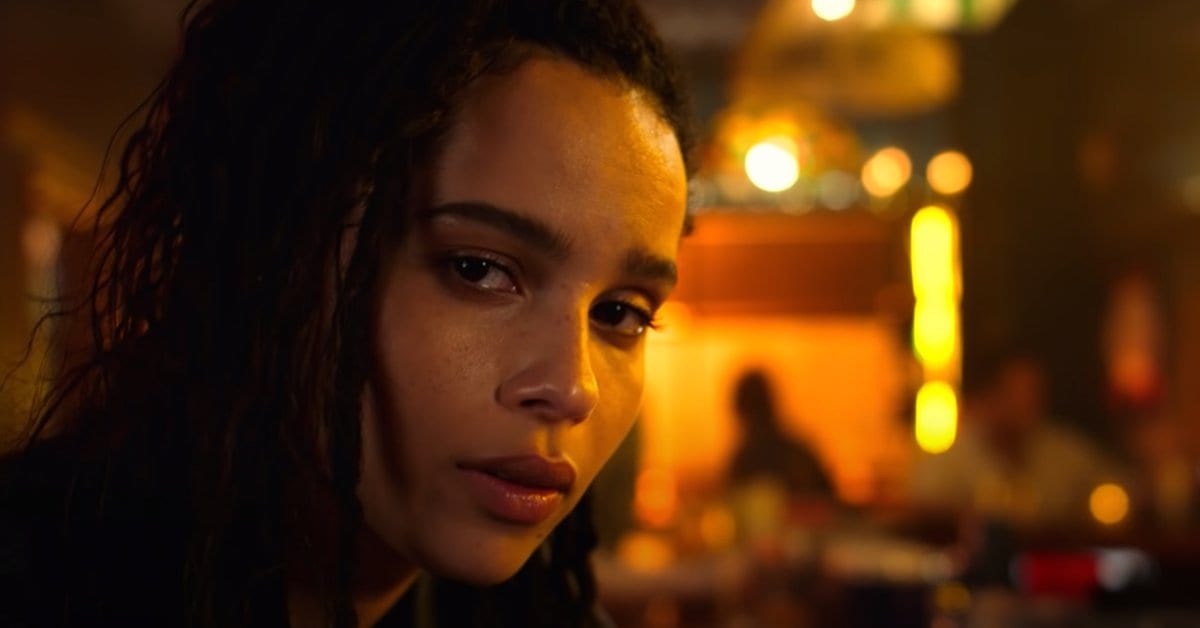
The device is used for bigger moments of showing her true feelings (screaming “what f*cking Lily girl?” down the street) but also smaller comedic moments, like when she asks the audience, “what the f*ck is a frosé?”
Additionally, there are just fun, meta moments throughout. When Rob’s new love interest Clyde (Jake Lacy) stops in the record store and remarks on there being actual customers in the store, Rob jokes that they are just “paid actors.” Or when Rob and her record store cronies Cherise (Da’Vine Joy Randolph) and Simon (David H. Holmes) discuss what makes an antihero an antihero (and make top 5 lists), it’s revealed later on to be a meta discussion of Rob’s eventual journey into antihero territory (more on that in a bit).
The Side Characters: Simon
Perhaps one of the most surprising and delightful subplots of High Fidelity is Simon’s standalone episode “Ballad of the Lonesome Loser” in which he greets us as the narrator with a coy “What? You think Rob has this monopoly on heartbreak?”
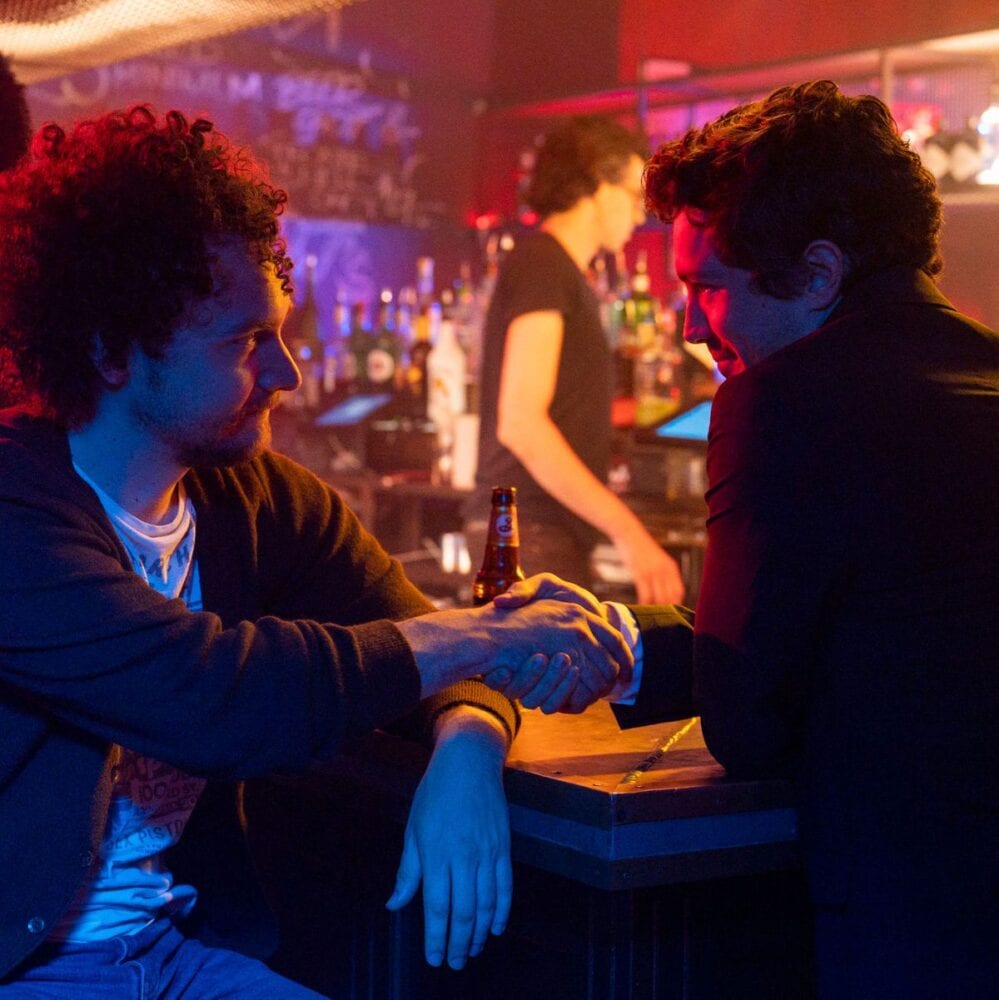
It’s a dip into a different headspace with a subtler, less opaque anger from a character, and it’s a deliciously queer episode featuring bad drag karaoke, chlamydia, and patterned button-ups. Simon’s top 5 starts, continues, and ends with the saga that is Benjamin Young (Christian Coulson) coming in and out of his life, causing him chaos, and bringing out the worst of his insecurities. Eventually, though, he realizes their union is always destined to cause him pain, and he takes a chance on barista Blake (Edmund Donovan) instead of going back to Ben for the nth time.
It’s a sweet and sometimes sad story that manages to interweave Rob and Cherise as the side characters to Simon’s story. Surely a Season 2 could’ve done more for Simon, Blake, and maybe even a dastardly return of the chaotically good-looking Benjamin?
The Side Characters: Cherise
Cherise is really the unsung hero of High Fidelity. She always has the best one-liners, sometimes serves as a punching bag for Rob, and above it all is a badass singer-songwriter (which, yes, comes right at the end). We don’t get any sort of love story or personal top 5 from Cherise, which is perhaps High Fidelity’s biggest crime. To be fair, Season 2 was supposed to center her as the protagonist, but I guess Hulu said “no <3.”
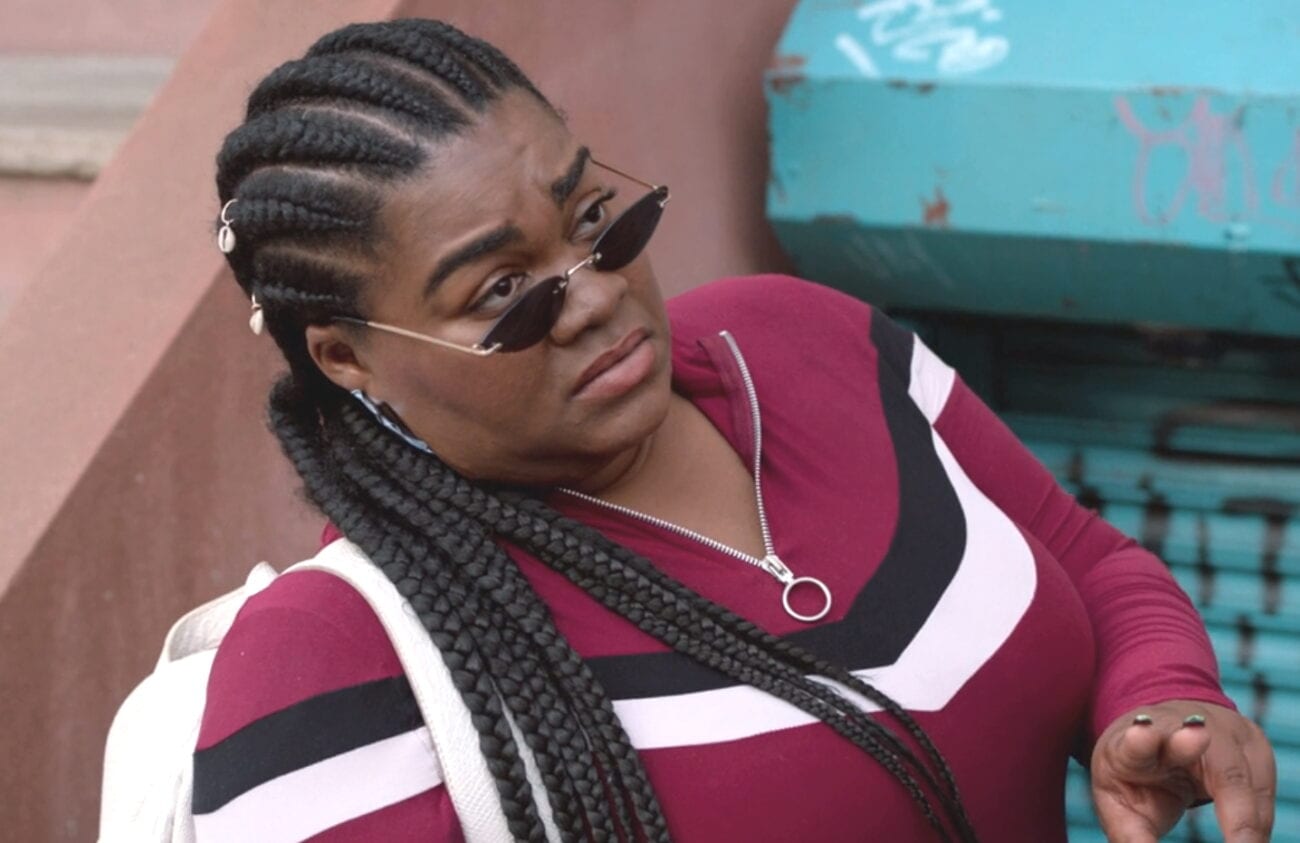
Cherise also becomes a bit of a wake-up call for Rob to realize that she is self-centered. We see in the last two episodes that Cherise has a side hustle and dreams (of an expensive vintage guitar) that have existed to other characters for some time, it’s just that Rob wasn’t paying attention.
Da’Vine Joy Randolph is a comedic revelation as Cherise—I could watch her mock Simon’s shirt in Episodes 7 and 8 on repeat and still laugh—but she also has dramatic acting chops which she showed in last year’s On Becoming a God in Central Florida opposite Kirsten Dunst. It’s perhaps Hulu’s greatest mistake in cancelling this series that we will never get to see a fully formed Cherise or the magic that Randolph would’ve brought to the role.
The Unreliable Narrator/Antihero
Instead of focusing on what didn’t happen, I guess we need to celebrate what was given to us, and I think High Fidelity’s crowning achievement is its construction of Rob as a trustworthy narrator and overall victim in the breakup with Mac—and then its rapid tear-down of its protagonist in Episode 9.
It’s a truly disarming moment, which then has Rob justify her actions to the audience because, by cheating on Mac, she was able to push him further and further away until he was the one to do the leaving. It’s a look inside the self-destructive psyche of a character that feels particularly fresh given that this is a space and excuse given so often to men. It also gives Zoë Kravitz the space to fully emote and show the range she’s capable of (which she was never really given in Big Little Lies).
Closing Up Shop
I’ve gone through so much bargaining in terms of what could have led to this decision. Did main director Jeffrey Reiner’s scandal factor into the decision? Did COVID make it impossible to film the DJ and live-show scenes? Did the cast or creators have other, bigger projects?
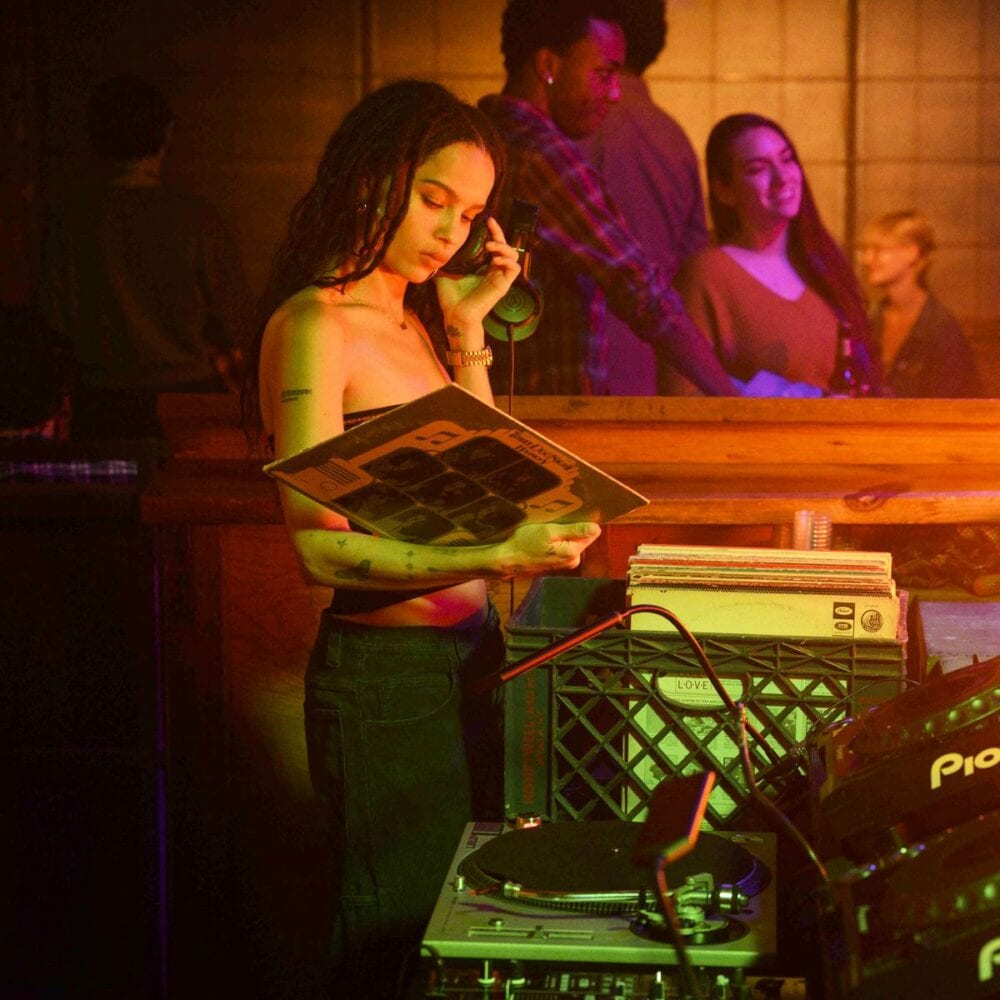
I don’t know, and perhaps we won’t have those answers for a couple more months, but for what it’s worth, High Fidelity was one of the best shows to grace our screens in 2020. I wasn’t particularly thrilled with the ending—especially now that it has become the final bow—but it was nice to see Rob take some responsibility for her actions and also put herself out there. That being said, I don’t think Jake Lacy’s Clyde is the answer, but I think the writers knew that. I like to think they had bigger, more nuanced things planned, and I’m sure they did. Anyway, cheers to developers Veronica West & Sarah Kucserka. They reinvented a stale story, which will hopefully lead to greater things for Kravitz, Holmes, and Randolph, in addition to themselves as writers. Until then.


Very nice piece, I enjoyed it and concur with all the points made.